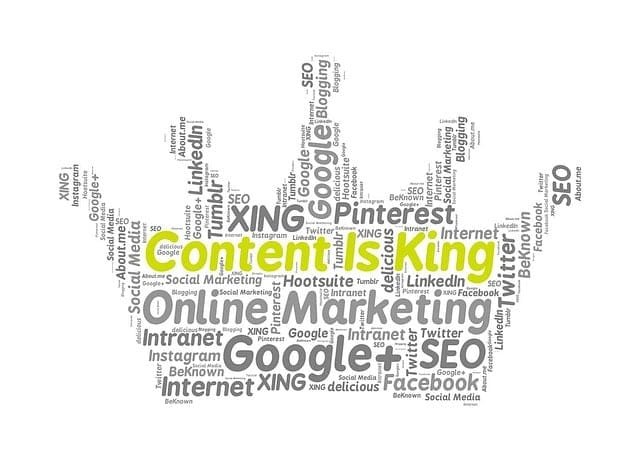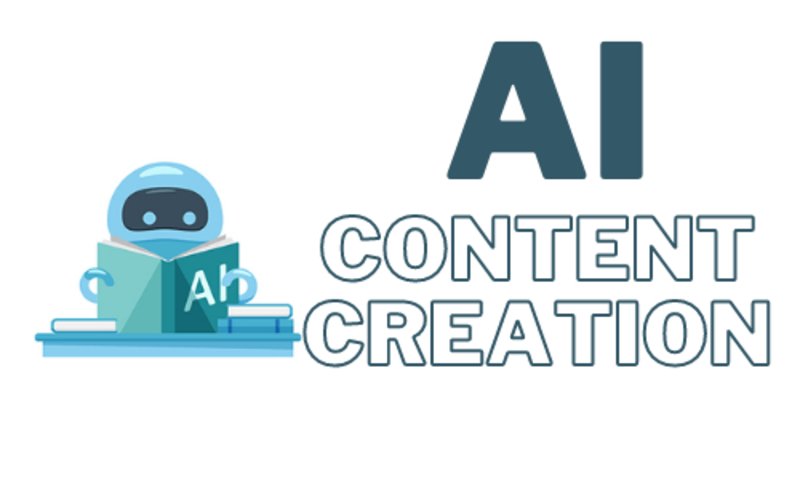In the digital age, creating content that stands out and ranks well in search engines is crucial for online success. Search Engine Optimization (SEO) plays a vital role in making sure your content reaches the right audience. With the advent of artificial intelligence (AI), crafting SEO-friendly content has become more accessible and efficient. AI tools can help you optimize your content, making it more appealing to both search engines and readers. In this article, we’ll explore how to create SEO-friendly content with the help of AI, ensuring your content is both engaging and effective.
Understanding SEO and AI
What is SEO?
SEO, or Search Engine Optimization, is the practice of optimizing your online content so that a search engine likes to show it as a top result for searches of a certain keyword.
The better your SEO, the higher your content ranks on search engine results pages (SERPs). Good SEO involves several factors, including keyword optimization, quality content, and backlinks.
What is AI?
Artificial Intelligence (AI) refers to the simulation of human intelligence in machines that are programmed to think like humans and mimic their actions.
In the context of SEO, AI can analyze vast amounts of data to identify patterns and make predictions, helping you create content that is more likely to rank well on search engines.
How AI Can Enhance SEO
Keyword Research
One of the most important aspects of SEO is keyword research. Keywords are the terms that people type into search engines. AI tools can help you identify the best keywords for your content by analyzing search trends and competition.
These tools can suggest keywords that have high search volumes but low competition, giving you a better chance of ranking higher.
Content Creation
AI can assist in generating content ideas and even creating content. Tools like GPT-3 can help you brainstorm topics and write articles.
These tools can create outlines, generate paragraphs, and even write entire articles based on the input you provide. While AI-generated content may need some editing, it can significantly speed up the content creation process.
Content Optimization
AI tools can analyze your content and suggest improvements. They can check for keyword density, readability, and overall SEO-friendliness.
Tools like Yoast SEO and Clearscope can provide real-time feedback on your content, helping you make necessary adjustments before publishing.
Crafting SEO-Friendly Content with AI
Start with a Solid Keyword Strategy
To create SEO-friendly content, start with thorough keyword research. Use AI tools to identify the best keywords for your niche.
Look for keywords that have a good balance of search volume and competition. Long-tail keywords, which are more specific phrases, can be particularly effective for targeting niche audiences.
Create High-Quality Content
Quality content is essential for good SEO. AI can help you generate ideas and even draft content, but it’s important to ensure that the content is valuable to your readers.
Focus on providing useful information, answering questions, and solving problems. High-quality content is more likely to be shared and linked to, which can boost your SEO.
Optimize Your Content
Use AI tools to optimize your content for SEO. Check for keyword placement, readability, and overall structure. Ensure that your content includes the main keyword naturally, without keyword stuffing.
Use related keywords and synonyms to make your content more comprehensive. Pay attention to headings, subheadings, and meta descriptions, as these elements are important for SEO.
Improve Readability
Readability is a key factor in SEO. Content that is easy to read and understand is more likely to engage readers and keep them on your site longer.
AI tools like Hemingway Editor can help you simplify your writing, making it more accessible. Break up long paragraphs, use simple words, and write in a conversational tone to improve readability.
Enhance User Experience
User experience is increasingly important for SEO. Google considers factors like page load speed, mobile-friendliness, and overall user experience when ranking content.
AI tools can help you analyze your site and identify areas for improvement. Ensure that your site is fast, easy to navigate, and looks good on all devices.
Monitoring and Improving SEO Performance
Track Your Rankings
Once you’ve published your content, it’s important to track its performance. Use AI tools to monitor your search engine rankings and see how your content is performing.
These tools can provide insights into which keywords are driving traffic and which pages are ranking well.
Analyze User Behavior
Understanding how users interact with your content can provide valuable insights. Use AI-powered analytics tools to track metrics like bounce rate, time on page, and conversion rates.
This data can help you identify areas where your content might be falling short and make necessary adjustments.
Continuous Improvement
SEO is an ongoing process. Continuously update and improve your content based on performance data. Use AI tools to identify new keywords, optimize existing content, and keep up with the latest SEO trends.
Regularly updating your content can help maintain and improve your search engine rankings.
Leveraging AI Tools for SEO-Friendly Content
Keyword Research Tools
AI-powered keyword research tools like SEMrush, Ahrefs, and Moz are essential for finding the right keywords for your content.
These tools can analyze search trends, competition, and user intent to help you choose keywords that will drive traffic to your site. By using these insights, you can create content that meets the needs of your audience and ranks well in search engines.
Content Creation Tools
AI content creation tools like Jasper (formerly Jarvis), Copy.ai, and Writesonic can help you generate high-quality content quickly. These tools can provide you with topic ideas, outlines, and even full paragraphs of text.
While the content they generate may require some editing and personalization, these tools can significantly speed up the writing process.
Content Optimization Tools
Optimizing your content for SEO involves more than just keyword placement. AI tools like Yoast SEO, Clearscope, and SurferSEO can analyze your content for readability, keyword density, and overall SEO-friendliness.
They provide real-time feedback and suggestions, helping you make the necessary adjustments before publishing.
Readability Enhancement Tools
Ensuring your content is easy to read and understand is crucial for keeping readers engaged. Tools like Hemingway Editor and Grammarly can help you simplify your writing and improve readability.
They highlight complex sentences, passive voice, and other readability issues, allowing you to make your content more accessible.
Analytics and Monitoring Tools
After publishing your content, use AI-powered analytics tools like Google Analytics, Hotjar, and SEMrush to monitor its performance. These tools can track important metrics like page views, bounce rate, and average time on page.
They also provide insights into user behavior, helping you understand how readers interact with your content.
Practical Steps to Create SEO-Friendly Content with AI
Research Your Topic Thoroughly
Before you start writing, research your topic thoroughly. Use AI tools to gather information about what your audience is searching for and what kind of content is already ranking well.
Look for gaps in existing content that you can fill with your own unique insights and perspectives.
Use AI for Initial Drafts
Start with an AI-generated draft to save time and get your creative juices flowing. Provide the AI tool with a clear prompt, including your main keyword and any subtopics you want to cover.
Review the generated content and refine it to ensure it aligns with your voice and style.
Optimize for Keywords
Integrate your main keyword naturally throughout your content. Use AI tools to find related keywords and synonyms, and include them in your text to make it more comprehensive.
Ensure that your keywords are included in headings, subheadings, and meta descriptions.
Enhance Readability and Engagement
Break up your content into short paragraphs and use subheadings to make it easy to scan. Use simple language and a conversational tone to engage your readers.
Tools like Hemingway Editor can help you identify areas where your writing might be too complex or difficult to read.
Add Visual Elements
Visual elements like images, infographics, and videos can enhance your content and make it more engaging. AI tools like Canva and Adobe Spark can help you create high-quality visuals that complement your text.
Ensure that all visual elements are optimized for SEO by including relevant keywords in their alt text and file names.
Monitor and Adjust
After publishing, monitor your content’s performance using AI analytics tools. Track key metrics and look for patterns in user behavior.
Use this data to make informed adjustments to your content, such as updating keywords, improving readability, or adding new sections.
Keep Content Up-to-Date
SEO is not a one-time task. Regularly update your content to keep it relevant and valuable to your audience. Use AI tools to identify new keywords and trends, and incorporate these into your updates.
Keeping your content fresh can help maintain and improve your search engine rankings.
The Future of SEO and AI

Continuous Advancements
AI technology is continually evolving, and its applications in SEO are expanding. Future advancements in AI could lead to even more sophisticated tools for content creation, optimization, and analytics.
Staying up-to-date with these developments will be crucial for maintaining a competitive edge in SEO.
Ethical Considerations
As AI becomes more integrated into SEO and content creation, ethical considerations will become increasingly important. Issues such as data privacy, algorithmic bias, and transparency must be addressed to ensure that AI is used responsibly.
Writers and marketers should be aware of these issues and strive to use AI in a way that is ethical and transparent.
Balancing AI and Human Creativity
While AI offers powerful tools for SEO, human creativity and judgment remain irreplaceable. The best results come from a balanced approach that leverages the strengths of both AI and human intelligence.
Use AI to handle routine tasks and provide insights, but rely on your creativity and critical thinking to create truly exceptional content.
Case Studies and Real-World Examples
AI in Content Marketing: HubSpot’s Success
HubSpot, a leading marketing software company, uses AI to enhance its content marketing efforts. By integrating AI tools into their content creation process, HubSpot has been able to produce high-quality, SEO-friendly content at scale.
They use AI to analyze their audience’s behavior and preferences, helping them tailor content to meet the needs of their readers. This has resulted in higher engagement rates, increased traffic, and improved search engine rankings.
The New York Times and AI-Powered Content
The New York Times employs AI to optimize its digital content. They use an AI tool called “Editor” to analyze articles and suggest improvements in real-time.
This tool helps writers ensure that their content is engaging, well-structured, and optimized for SEO. By leveraging AI, The New York Times can maintain high standards of quality while also increasing efficiency.
eBay’s SEO Strategy with AI
eBay, the global e-commerce giant, uses AI to enhance its SEO strategy. They utilize AI tools to conduct extensive keyword research and optimize product listings.
AI helps eBay analyze search trends and identify high-performing keywords, allowing them to create more effective listings that rank well in search engines. This has led to increased visibility and sales on their platform.
Overcoming Challenges with AI in SEO
Addressing Content Quality Concerns
While AI can generate content quickly, ensuring that the content is of high quality remains a challenge. It’s important to review and edit AI-generated content to make sure it aligns with your brand voice and provides value to your readers.
Combining AI-generated content with human oversight can help maintain high standards.
Avoiding Keyword Stuffing
AI tools can suggest keywords, but it’s crucial to avoid keyword stuffing, which can harm your SEO. Use keywords naturally within the content, and focus on creating informative and engaging text.
Tools like Yoast SEO can help you maintain the right balance by providing feedback on keyword usage.
Ensuring Originality
AI tools can sometimes produce content that is too similar to existing material, raising plagiarism concerns. Use plagiarism detection tools to ensure your content is original.
Additionally, add your unique insights and perspectives to make the content stand out.
Tips for Maximizing AI’s Potential in SEO
Combine AI with Human Expertise
AI is a powerful tool, but human expertise is essential for creating truly exceptional content. Use AI to handle repetitive tasks and provide data-driven insights, but rely on your creativity and critical thinking to craft compelling narratives and add unique value.
Stay Updated with AI Developments
AI technology is constantly evolving. Stay updated with the latest advancements in AI and SEO tools. Follow industry blogs, attend webinars, and participate in online communities to learn about new features and best practices.
This will help you make the most of AI in your content strategy.
Experiment and Iterate
Don’t be afraid to experiment with different AI tools and techniques. Test various approaches to see what works best for your content and audience. Use analytics to track performance and make data-driven adjustments.
Continuous experimentation and iteration are key to optimizing your SEO strategy.
Future Trends in AI and SEO
Voice Search Optimization
With the rise of voice-activated devices like Amazon Alexa and Google Home, optimizing content for voice search is becoming increasingly important.
AI tools can help you understand how people use voice search and suggest ways to optimize your content for these queries. This includes using natural language and answering common questions directly.
AI-Powered Visual Content
Visual content is a critical component of SEO. AI can help you create and optimize images, videos, and infographics. Tools like Canva use AI to suggest design elements and layouts, making it easier to create visually appealing content.
Additionally, AI can help optimize visual content for search engines by providing relevant tags and descriptions.
Predictive Analytics
Predictive analytics powered by AI can help you anticipate trends and plan your content strategy accordingly. By analyzing historical data and current trends, AI can provide insights into what topics are likely to become popular.
This allows you to create content that is timely and relevant, boosting your SEO efforts.
Integrating AI into Your Content Workflow
Planning and Research Phase
During the planning and research phase, AI can be incredibly beneficial. Use AI tools like SEMrush and Ahrefs to conduct keyword research. These tools can help you identify high-potential keywords and understand what topics are trending in your industry.
AI can also help you analyze your competitors, giving you insights into what type of content is working well for them and how you can differentiate your content.
Content Creation Phase
In the content creation phase, AI can assist with generating ideas and even drafting content. Tools like Jasper and Copy.ai can create initial drafts based on your input.
Start by providing these tools with a detailed brief that includes your main keyword, target audience, and the key points you want to cover. Review and refine the AI-generated content to ensure it aligns with your voice and style.
Remember, while AI can draft content quickly, human touch is essential for adding personality and unique insights.
Optimization Phase
Optimizing your content for SEO involves ensuring that it meets all the criteria that search engines use to rank pages. AI tools like Yoast SEO and SurferSEO can analyze your content in real-time, providing suggestions for keyword usage, meta descriptions, and readability.
These tools can help you ensure that your content is not only keyword-rich but also engaging and easy to read.
Publication and Promotion Phase
Once your content is ready, AI can help with the publication and promotion phase. Tools like Hootsuite and Buffer can automate social media posting, ensuring that your content is shared at optimal times to reach the largest audience.
AI can also assist with email marketing by personalizing newsletters and automating send times based on subscriber behavior.
Monitoring and Analysis Phase
After your content is published, it’s crucial to monitor its performance. AI-powered analytics tools like Google Analytics and SEMrush can track key metrics such as page views, bounce rate, and conversion rates.
These tools provide insights into how users are interacting with your content, allowing you to make data-driven decisions for future content.
The Role of AI in Different Content Types
Blog Posts
For blog posts, AI can help with everything from topic generation to SEO optimization. Use AI to identify trending topics and high-potential keywords.
AI tools can draft initial posts and suggest improvements for readability and SEO. By leveraging AI, you can create blog posts that are both engaging and optimized for search engines.
Product Descriptions
In e-commerce, product descriptions are crucial for SEO and conversions. AI can generate detailed and persuasive product descriptions based on key features and benefits.
Tools like Writesonic can help create descriptions that are optimized for search engines while still appealing to potential buyers.
Social Media Content
Creating engaging social media content can be time-consuming. AI tools can help generate posts, schedule them for optimal times, and even analyze their performance.
Use AI to create a consistent social media strategy that drives engagement and traffic to your website.
Long-Form Content
For long-form content like whitepapers and e-books, AI can assist with research, drafting, and optimization. AI tools can help you structure your content, ensuring it covers all necessary points and is easy to read.
They can also provide insights into which sections might need more detail or which keywords to include.
Best Practices for Using AI in SEO Content Creation
Maintain a Human Touch
While AI can handle many aspects of content creation, it’s important to maintain a human touch. Add your unique insights, experiences, and personality to the content. This will make it more engaging and relatable for your readers.
Use AI as a Complementary Tool
Think of AI as a tool that complements your skills, not a replacement. Use it to handle repetitive tasks and provide data-driven insights, but rely on your creativity and judgment to create high-quality content.
Regularly Update Your Content
SEO is an ongoing process. Regularly update your content to keep it relevant and valuable to your audience. Use AI tools to identify new keywords and trends, and incorporate these into your updates.
Be Ethical and Transparent
When using AI, be transparent about it. Let your audience know that AI tools were used to assist in content creation.
This builds trust and ensures that you are using AI ethically.
Continuously Learn and Adapt
AI and SEO are constantly evolving fields. Stay updated with the latest trends and advancements. Continuously learn and adapt your strategies to stay ahead of the competition.
Future Implications of AI in SEO
Enhanced Personalization
AI will continue to improve in providing personalized content recommendations. This means that you can create highly targeted content that meets the specific needs and preferences of different audience segments.
Improved Voice Search Optimization
As voice search becomes more popular, AI will play a key role in optimizing content for voice queries. This involves understanding natural language and creating content that answers common voice search queries effectively.
Greater Integration with Other Technologies
AI will increasingly integrate with other technologies like virtual reality (VR) and augmented reality (AR), providing new opportunities for creating immersive and interactive content.
Ethical and Responsible AI Use
As AI becomes more prevalent, there will be a greater focus on ethical and responsible use. This includes addressing issues like data privacy, algorithmic bias, and transparency.
Utilizing Data for SEO-Friendly Content Creation with AI

The Importance of Data in SEO
Data is the backbone of any successful SEO strategy. It provides insights into what your audience is searching for, how they interact with your content, and what drives traffic to your site. By leveraging data, you can make informed decisions that enhance your content and improve your search engine rankings.
AI tools can analyze vast amounts of data quickly and accurately, offering actionable insights that can significantly impact your SEO efforts.
Types of Data Essential for SEO
Keyword Data
Keyword data is critical for understanding what terms and phrases your audience uses to find content similar to yours. AI tools can help you identify high-volume and low-competition keywords, as well as long-tail keywords that target specific niches.
User Behavior Data
Understanding how users interact with your content is crucial. User behavior data includes metrics like bounce rate, time on page, and click-through rates. AI can analyze this data to identify patterns and suggest improvements to enhance user engagement.
Competitive Data
Analyzing your competitors can provide valuable insights. AI tools can track your competitors’ keyword rankings, content strategies, and backlink profiles.
This information can help you identify gaps in your own strategy and find opportunities to outperform your competition.
Leveraging AI for Data Analysis
Keyword Research and Analysis
AI tools like SEMrush, Ahrefs, and Moz use algorithms to analyze keyword data, providing insights into search volume, keyword difficulty, and competitive landscape.
These tools can also suggest related keywords and trends, helping you expand your keyword strategy.
Content Performance Analysis
AI-powered analytics platforms like Google Analytics and Hotjar provide detailed reports on how your content performs.
They track metrics such as page views, average session duration, and user flow. By analyzing this data, AI can identify which content resonates most with your audience and suggest areas for improvement.
User Experience Insights
Tools like Crazy Egg and FullStory use AI to analyze user behavior on your site. They provide heatmaps, session recordings, and user feedback, showing you how visitors interact with your content.
These insights can help you optimize your site layout, improve navigation, and enhance overall user experience.
Practical Steps to Use Data for SEO-Friendly Content
Set Clear Objectives
Before diving into data analysis, set clear SEO objectives. Whether it’s increasing organic traffic, improving keyword rankings, or enhancing user engagement, having specific goals will help you focus your data analysis efforts.
Use AI Tools for Comprehensive Data Collection
Utilize AI tools to gather comprehensive data on keywords, user behavior, and competitors. Ensure that you are collecting data from multiple sources for a well-rounded view.
Analyze Data to Identify Trends and Patterns
AI can process large datasets quickly, identifying trends and patterns that might be missed manually. Use these insights to understand what types of content perform best, which keywords drive traffic, and how users interact with your site.
Apply Insights to Content Strategy
Translate data insights into actionable steps for your content strategy. This could involve targeting new keywords, optimizing existing content, creating new content types, or improving site usability based on user behavior data.
Future Trends in Data-Driven SEO with AI

Predictive Analytics
Predictive analytics uses AI to forecast future trends based on historical data. In SEO, predictive analytics can help you anticipate changes in search behavior and adjust your strategy accordingly.
This proactive approach can give you a competitive edge by allowing you to create content that meets future demand.
Real-Time Data Analysis
Real-time data analysis enables you to monitor and respond to changes in user behavior and search trends as they happen. AI tools can provide real-time insights, allowing you to make immediate adjustments to your content and SEO strategy.
Advanced Natural Language Processing (NLP)
NLP advancements are enhancing AI’s ability to understand and analyze human language. This will improve keyword analysis, content creation, and user intent identification.
AI tools will become better at generating contextually relevant content that aligns with user queries and search engine algorithms.
Ethical Use of Data
As data privacy regulations become stricter, ethical use of data will be paramount. AI tools must comply with privacy laws and ensure that data is used responsibly.
Transparency and user consent will be key factors in maintaining trust and compliance.
Wrapping it up
Harnessing AI to create SEO-friendly content is transforming how we approach digital marketing. By leveraging AI tools for keyword research, content creation, optimization, and data analysis, you can enhance your SEO strategy and improve search engine rankings. AI helps streamline the content creation process, providing valuable insights and optimizing your content for better engagement and visibility.
Embrace AI as a powerful ally, combining it with your creativity and expertise to stay ahead in the competitive landscape of SEO. Remember, the ethical use of data is crucial for maintaining trust and compliance. By integrating AI effectively, you can achieve greater online success and reach your target audience more efficiently.
READ NEXT:
- Flyer Marketing in 2024: Key Statistics and Effectiveness
- The Intersection of Sports and Social Media: Key Statistics
- Website Marketing Statistics: Key Data Points for 2024
- How Much Time Do We Spend on Social Media? Key Statistics
- Budgeting for Small Business Marketing: Essential Statistics






















Comments are closed.